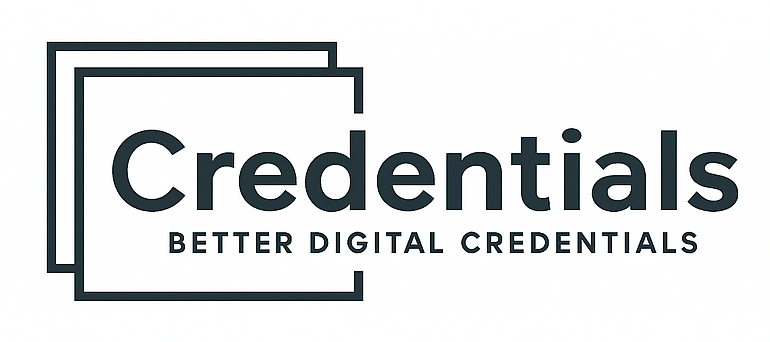The Rise of Digital Credentials in the U.S.: 1EdTech, Adoption Trends, and POK’s Global Expansion
Introduction
The U.S. higher education system is undergoing a transformation: digital credentials, badges, and micro-credentials are replacing paper diplomas as the language of skills. Organizations like 1EdTech are standardizing this ecosystem through the Comprehensive Learner Record (CLR) and the TrustEd Credential framework.
Alongside U.S. pioneers such as the University of Phoenix and Wichita State University, new global players like POK – Proof of Knowledge are emerging as leaders in blockchain-verified, interoperable credentials, bringing innovation from Latin America to the United States and Europe.
Adoption and Market Growth in the U.S.
- According to UPCEA (2024), 94% of U.S. colleges and universities now offer some form of alternative credential (badges, micro-credentials, certificates).
- Over 1.7 million digital credentials were issued in just six months in 2022 by around 1,700 institutions and organizations.
- 53% of higher education leaders report they already offer micro-credentials for academic credit, and 82% expect to do so by 2030.
- The University of Phoenix alone has issued more than 450,000 digital badges since 2021.
This shows how the U.S. is rapidly scaling credential adoption — and looking for interoperable, blockchain-ready solutions.
The Role of 1EdTech
1EdTech (formerly IMS Global) ensures that digital credentials are not just PDFs or badges in a silo. Their frameworks include:
- Comprehensive Learner Record (CLR): interoperable learner transcripts that capture skills, achievements, and outcomes.
- OpenBadge 3.0: the leading global standard for portable digital badges.
- TrustEd Credential Coalition: a commitment from institutions and EdTech providers to transparent, metadata-rich, verifiable credentials.
Examples:
- Wichita State University partnered with Territorium to launch the first 1EdTech TrustEd micro-credential.
- AACRAO has issued guidance recommending adoption of CLR as the default learner record standard.
Where POK Fits In
While U.S. institutions adopt standards, POK – Proof of Knowledge has built one of the world’s fastest-growing ecosystems of digital credentials:
- 1,000+ universities and organizations across Latin America and Spain already issue POK credentials.
- All POK credentials comply with 1EdTech OpenBadge 3.0 and the European Learning Model (ELM).
- POK is the first credentialing platform to offer NFT-based blockchain verification at scale in the region.
- POK Wallet gives learners true ownership of credentials, portable across institutions and employers globally.
Now, POK is expanding into the U.S., where skills-based hiring and lifelong learning models create demand for scalable, standards-based solutions. By aligning with 1EdTech’s TrustEd framework, POK positions itself as a bridge between Latin America’s innovation and U.S. institutional adoption.
Benefits Driving Adoption
- Portability: Students can carry their POK and 1EdTech-aligned credentials across borders.
- Verification: Blockchain and metadata reduce fraud and ensure trust for employers.
- Stackability: Learners build progressive skill portfolios instead of relying only on one-time diplomas.
- Employer value: Mapping skills to job frameworks improves both hiring and upskilling processes.
- Scalability: Platforms like POK automate credential issuance at institutional scale.
Challenges Still Ahead
- Employer education: Many U.S. recruiters still don’t fully understand micro-credentials.
- System integration: Legacy campus systems often slow down implementation.
- Trust & metadata: Without standards like 1EdTech TrustEd, credentials risk being fragmented.
- Equity: Ensuring that underserved learners also access and benefit from digital credentials.
Outlook 2025–2030
- Wider adoption of CLR and OpenBadge 3.0 across U.S. universities.
- More blockchain pilots, with institutions testing learner-owned records.
- Hybrid ecosystems where traditional degrees, stackable microcredentials, and POK’s blockchain NFTs coexist.
- Globalization of standards, where platforms like POK act as connectors between Latin America, Europe, and the United States.
Conclusion
Digital credentials in the U.S. are at a tipping point. With 94% of institutions engaged, millions of badges issued, and organizations like 1EdTech setting standards, the foundation is strong.
What’s new is the entry of global players like POK (Proof of Knowledge). By combining blockchain verification, compliance with 1EdTech standards, and a rapidly growing base of universities in Latin America, POK is uniquely positioned to accelerate adoption in the U.S. and beyond.
👉 The future of education will not be defined by a single country or organization — it will be built by interoperable ecosystems, where POK and 1EdTech work side by side to create a global language of skills.

